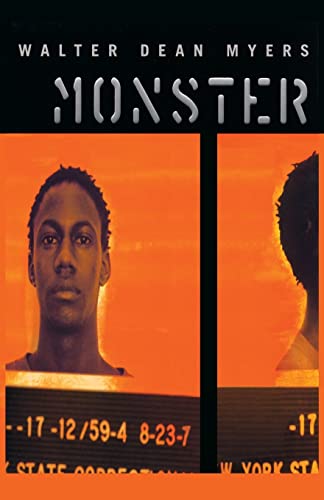

Edge-of-the-seat courtroom scenes written entirely in dialogue wind the reader up, then thoughtful journal entries allow readers to catch their breaths.

The format of this taut story regulates the pacing. Steve's feelings about himself, his terror of jail, and his reaction to the epithet "monster," leave the reader guessing. They want Steve to be found not guilty, even as they try to figure out if Steve really is guilty. Walter Dean Myers writes about human beings who make their own choices and react to their own circumstances - even the minor characters have enough individuality to ring true - and, as a result, teen readers care about them.


The suspense and drama keep reluctant readers turning the pages, while more advanced readers will respond to the issues raised. "Monster" is a quick read that will draw in reluctant readers with its mixed journal and screenplay-style narrative, but be warned: it not only entertains (because let's face it: it's just a darn good story), it also gets kids and teens to think. Though these questions are never explicitly asked, Myers' story encourages readers to consider how we view young, urban black men how these perceptions are internalized justice how a life (potentially) derails. Readers are left to figure out Steve's guilt or innocence Steve himself must grapple with who he is versus what others see him as. I rate this as appropriate for ages 13 and up not for any "controversial content," but because Myer weaves such a complex story, following the protagonist, Steve, as he struggles to understand how he's come to this point, his overwhelming trial, his dreams in life. Violence? Of course violence is part of "Monster " the story is about a young teenager on trial for aiding in a robbery which results in murder. If there's an infrequent use of "mild to moderate" language and implicit or passing references to sexual activity, I'm unsure why this book would be rated so highly for sex and language.


 0 kommentar(er)
0 kommentar(er)
